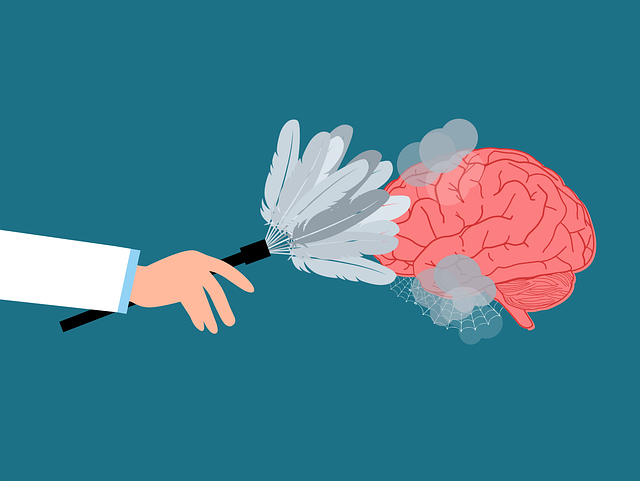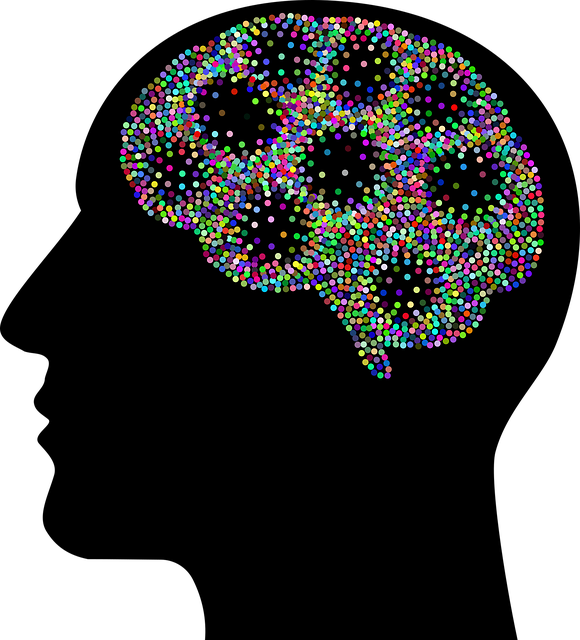Depression in young children, often overlooked due to its early onset, is a growing concern. Recognizing subtle signs and addressing risk factors such as genetic predisposition, trauma, chronic illness, and environmental influences is crucial. Dialectical Behavioral Therapy (DBT) has proven effective for teaching emotional regulation skills, mindfulness, and coping strategies, improving mental health outcomes. DBT empowers young individuals to manage stress, increase self-awareness, and improve interpersonal effectiveness, addressing symptoms of depression while fostering resilience. Proactive strategies like DBT integrated into parenting and school programs can prevent and support childhood depression, normalizing open discussions about feelings and challenges. Prioritizing mental health resources ensures accessibility to support systems, creating a culture of care where seeking help is normalized.
Depression among young children is a growing concern, yet preventable with early intervention. This article explores vital strategies to tackle this issue head-on. We delve into the early signs and risk factors of depression in young kids, highlighting the significance of identifying it at its inception. The focus shifts to effective therapy approaches, particularly Dialectical Behavioral Therapy (DBT), known for its success in treating childhood depression. Additionally, we provide practical parenting strategies and discuss the role of supportive environments, schools, and communities in fostering mental well-being.
- Understanding Depression in Young Children: Early Signs and Risk Factors
- Therapy Options for Young Children with Depression: A Focus on Dialectical Behavioral Therapy (DBT)
- Parenting Strategies to Prevent and Support Childhood Depression
- Creating a Supportive Environment: Schools, Communities, and Access to Mental Health Resources
Understanding Depression in Young Children: Early Signs and Risk Factors

Depression among young children is a growing concern, yet it’s often overlooked due to its early and subtle onset. Recognizing the signs and understanding risk factors are crucial steps in prevention. Children as young as 3 can experience symptoms of depression, which may include persistent sadness, loss of interest in activities they once enjoyed, changes in appetite or sleep patterns, and even physical complaints with no medical basis. These initial indicators might be easily missed, especially if they manifest alongside co-occurring conditions like anxiety.
Several risk factors contribute to a child’s vulnerability to depression. They include genetic predisposition, trauma or adverse life events, chronic illness, and certain environmental factors. Cultural competency training for healthcare providers is essential to ensure these issues are addressed appropriately. Dialectical Behavioral Therapy (DBT) has proven effective in treating childhood depression by teaching emotional regulation skills, distress tolerance, mindfulness, and interpersonal effectiveness. Encouraging self-care routines, such as structured playtime, quality sleep habits, and healthy eating, can also significantly contribute to better mental health outcomes for young children.
Therapy Options for Young Children with Depression: A Focus on Dialectical Behavioral Therapy (DBT)

Depression among young children is a growing concern, highlighting the need for effective therapy options. One evidence-based approach gaining traction in this field is Dialectical Behavioral Therapy (DBT). DBT, originally designed for adults with borderline personality disorder, has shown promising results when adapted for younger populations. This therapy focuses on teaching emotional regulation skills, mindfulness practices, and effective coping strategies to help children navigate their feelings and improve their overall mental wellness.
By combining individual therapy sessions with group skills training, DBT empowers young individuals to manage stress, increase self-awareness, and enhance interpersonal effectiveness. The dialectical aspect encourages a balanced approach to accepting one’s emotions while also learning to change unhelpful behaviors. This comprehensive strategy not only addresses the symptoms of depression but also fosters resilience and a healthier relationship with emotions in the long term. As public awareness campaigns for mental health continue to evolve, DBT stands out as a powerful tool in the development of effective prevention strategies for young children battling depressive disorders.
Parenting Strategies to Prevent and Support Childhood Depression

Parenting plays a pivotal role in preventing and supporting childhood depression. Implementing proactive strategies can help foster resilience and emotional well-being in young children. One effective approach is incorporating dialectical behavioral therapy (DBT) techniques into daily routines. DBT focuses on teaching skills for mood management, stress reduction, and improving interpersonal effectiveness, which are crucial components of mental health education programs designed specifically for children.
Beyond individual therapy, parents can organize stress management workshops to engage their kids in activities that promote mindfulness and emotional awareness. These workshops can be integrated into family time, creating a supportive environment where open discussions about feelings and challenges become the norm. By combining these strategies, parents not only equip their children with valuable tools for navigating difficult emotions but also strengthen the familial bond, contributing to a more positive mental health landscape for all involved.
Creating a Supportive Environment: Schools, Communities, and Access to Mental Health Resources

Creating a supportive environment is pivotal in depression prevention, especially for vulnerable populations like young children. Schools and communities play a crucial role in fostering mental wellness by integrating programs that promote stress management and self-awareness exercises. Early intervention through therapy for young children, such as Dialectical Behavioral Therapy (DBT), can significantly mitigate risks of depression. DBT equips children with essential coping skills to navigate emotional challenges effectively.
By prioritizing mental health resources within these settings, we ensure accessibility to support systems. This approach not only benefits individual students or community members but also creates a collective culture of care and understanding, where seeking help is normalized. Such proactive measures can prevent depression from taking root, emphasizing the importance of a holistic, supportive environment for overall well-being.
Preventing depression in young children involves a multi-faceted approach. By recognizing early signs and understanding risk factors, parents and caregivers can foster a supportive environment. Integrating evidence-based therapy, such as Dialectical Behavioral Therapy (DBT), along with effective parenting strategies, proves crucial in mitigating risks. Schools, communities, and accessible mental health resources play a significant role in creating a network of support, ensuring children receive the care they need to thrive and overcome depression.








